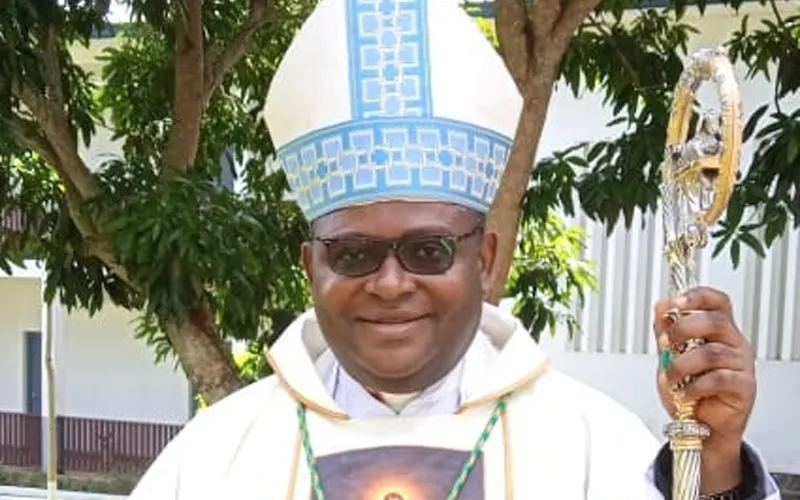He illustrates, “Expressing their discontentment with the way things happened some members of the Missionary Sons of Saint Peter wrote concerning ‘ordination fraud’ that ‘with the approval of the deacons of the association to onward procession into the presbyteral order, Rev. Fr. Peter Mary Omini Okoi as the superior deceived the Bishop, by removing five of the approved names and replacing them with people whom he had collected huge sums of money from, who are not members of the association.”
“This speaks of fraud, deceit, and simony, practiced by some of these associations which my predecessor may not have been aware of, thus, being lured as a holy pastor into ordaining persons he personally did not know,” Bishop Bibi says, adding that “this could be the reason why some members of these groups which had been existing in Nigeria had to seek accommodation in the Diocese of Buea, far from their home Dioceses where they were well known.”
Bishop Bibi says that even if there had not been any questions regarding the suitability of the candidates being admitted to the Sacred Orders, superiors of the associations took it upon themselves to announce banns, get the results, and present the candidates to the Bishops which is against the law of the Church.
“The law does not give them such authority and therefore the dimissorial letters they granted were not only invalid but illegitimate, and by that fact, according to the prescripts of Canon 1383, those whom they presented for ordination and who were ordained are ipso facto suspended,” he says.
As a way forward, Bishop Bibi says the Cameroonian Diocese has no obligation towards persons belonging to these associations.
(Story continues below)
While he announces the suppression of the six “congregations” in his Episcopal See and the February 22 ultimatum for the members “to leave the Diocese of Buea”, Bishop Bibi adds, “All those who were ordained to Sacred Orders in these associations, and desire to be incardinated into the Diocese of Buea, have to submit a letter of intent to that effect, latest Tuesday 22nd of March 2022, at the Chancery of the Diocese of Buea.”
Those who wish to join other Dioceses “could be recommended if they are found worthy”, he further says, and advises those who were “incorporated through the rite of profession of the evangelical counsels, by means of public vows … to transfer to any other canonical institute or society of their choice within or outside the Diocese in accordance with the norm of law.”
“The Diocese of Buea deeply cherishes the mission of consecrated persons, who commit themselves in chastity, poverty and obedience, and desires to see it flourish among us,” Bishop Bibi says in his conclusion, and underscores the need for “appropriate discernment, in order that the presence and action of consecrated persons in the Diocese will truly be opportunities for the sanctification of God’s people.”
Magdalene Kahiu is a Kenyan journalist with passion in Church communication. She holds a Degree in Social Communications from the Catholic University of Eastern Africa (CUEA). Currently, she works as a journalist for ACI Africa.








